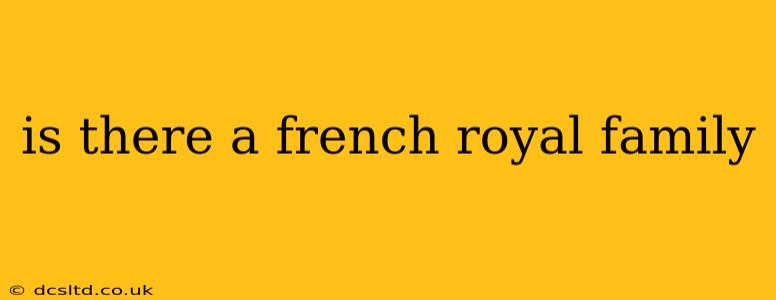Is There a French Royal Family?
The question of whether there's a French royal family is complex, depending on how you define "royal family." There's no longer a reigning monarch in France, the monarchy having been abolished in 1870. However, various claimants to the French throne exist, each with their own lineage and following. This means there isn't a single, universally recognized "French royal family" in the same way there is for, say, the British monarchy.
What happened to the French monarchy?
The French monarchy, a long and complex history spanning centuries, ultimately ended with the Third Republic in 1870. The French Revolution (1789-1799) dramatically overthrew the Bourbon monarchy, leading to the execution of King Louis XVI and the establishment of a republic. While there were attempts to restore the monarchy, notably under Louis XVIII and Charles X, the July Revolution of 1830 and the 1848 revolution permanently ended the Bourbon reign. The Second Empire under Napoleon III also represented a break from the traditional monarchy. The final nail in the coffin was the establishment of the Third Republic, formally ending any claim to a ruling monarch.
Who are the current claimants to the French throne?
Several families claim descent from the various branches of the French royal family, leading to competing claims. The most prominent contenders usually stem from:
-
The House of Bourbon: This is the oldest and most historically significant claim. Different branches of the Bourbons have put forward their claims over the years.
-
The House of Orléans: This branch, descending from Louis-Philippe I, also presents a claim, though arguably weaker in terms of traditional legitimacy compared to the Bourbon line.
These claimants don't hold any political power, and their claims are largely symbolic. They maintain a presence through various royalist organizations and societies but have no influence over French governance.
Do these claimants have any influence or power?
No, the claimants to the French throne hold no political power or influence within France. They are private citizens with no formal role in the French government or political system. Their activities are largely ceremonial, focusing on maintaining historical traditions and engaging with royalist supporters. Their "royalty" is primarily symbolic and based on lineage.
Are there any modern-day traditions associated with the former French royal family?
While there's no reigning monarch, certain traditions and symbols associated with the French monarchy persist. This includes historical sites, royalist organizations, and commemorative events celebrating aspects of French royal history. These are largely cultural, rather than having any political implications. The monarchy's legacy continues to influence aspects of French culture, art, and even tourism.
Is there a future for a French monarchy?
The likelihood of a return to monarchy in France is extremely low. The French Republic is strongly established, and there is no significant popular support for restoring a monarchy. While some royalist groups exist, they represent a small fraction of the population.
In conclusion, while there's no reigning French royal family, there are individuals and families who claim descent from the old monarchy and maintain a symbolic presence. However, they hold no real power or influence in modern-day France. The French Republic remains firmly in place.
